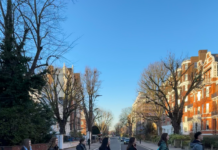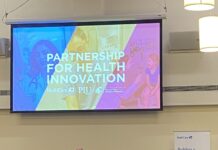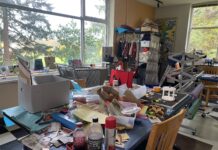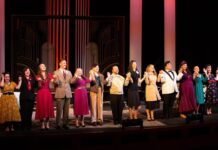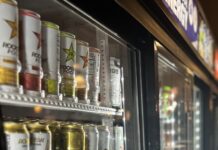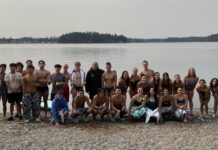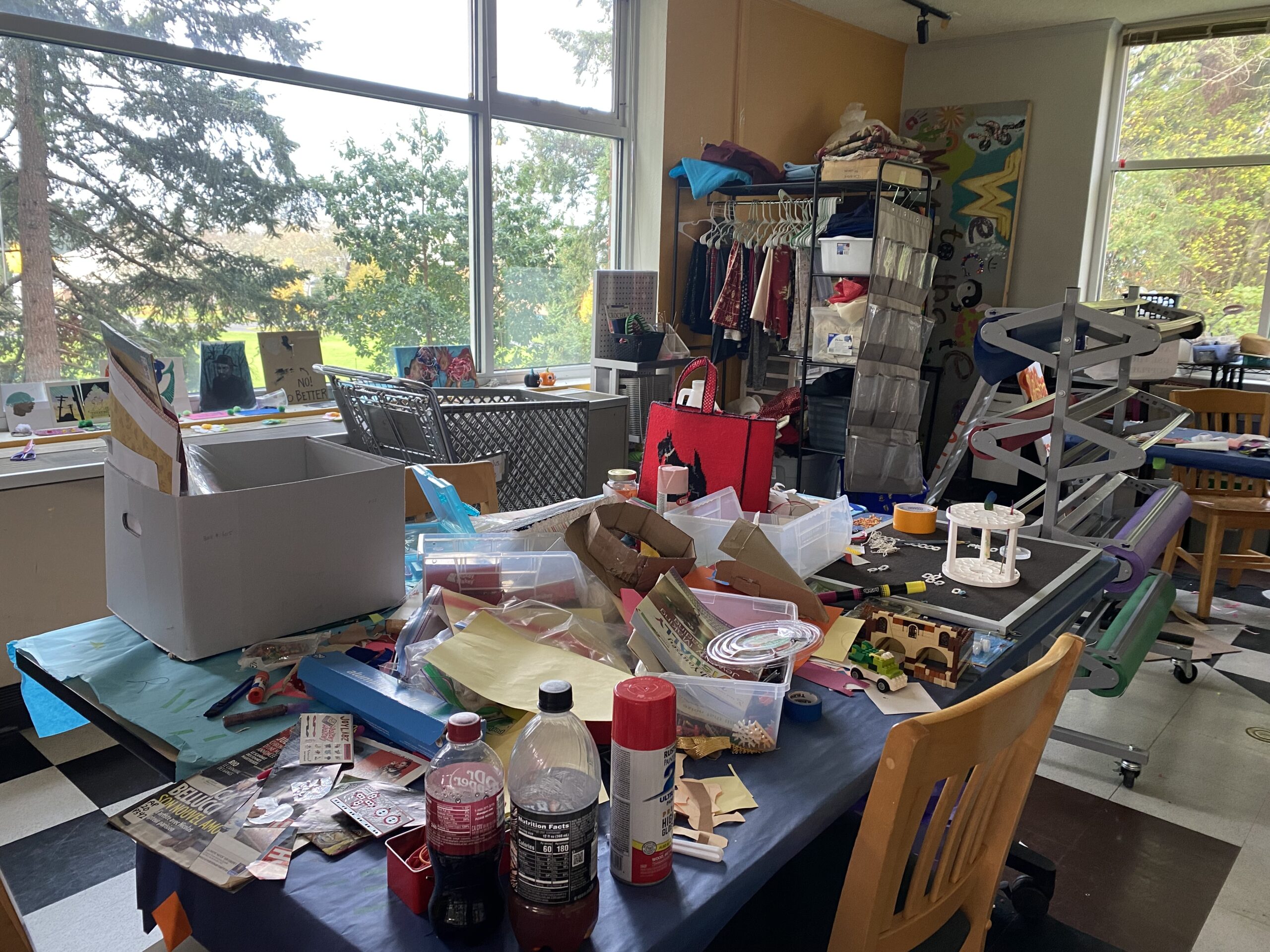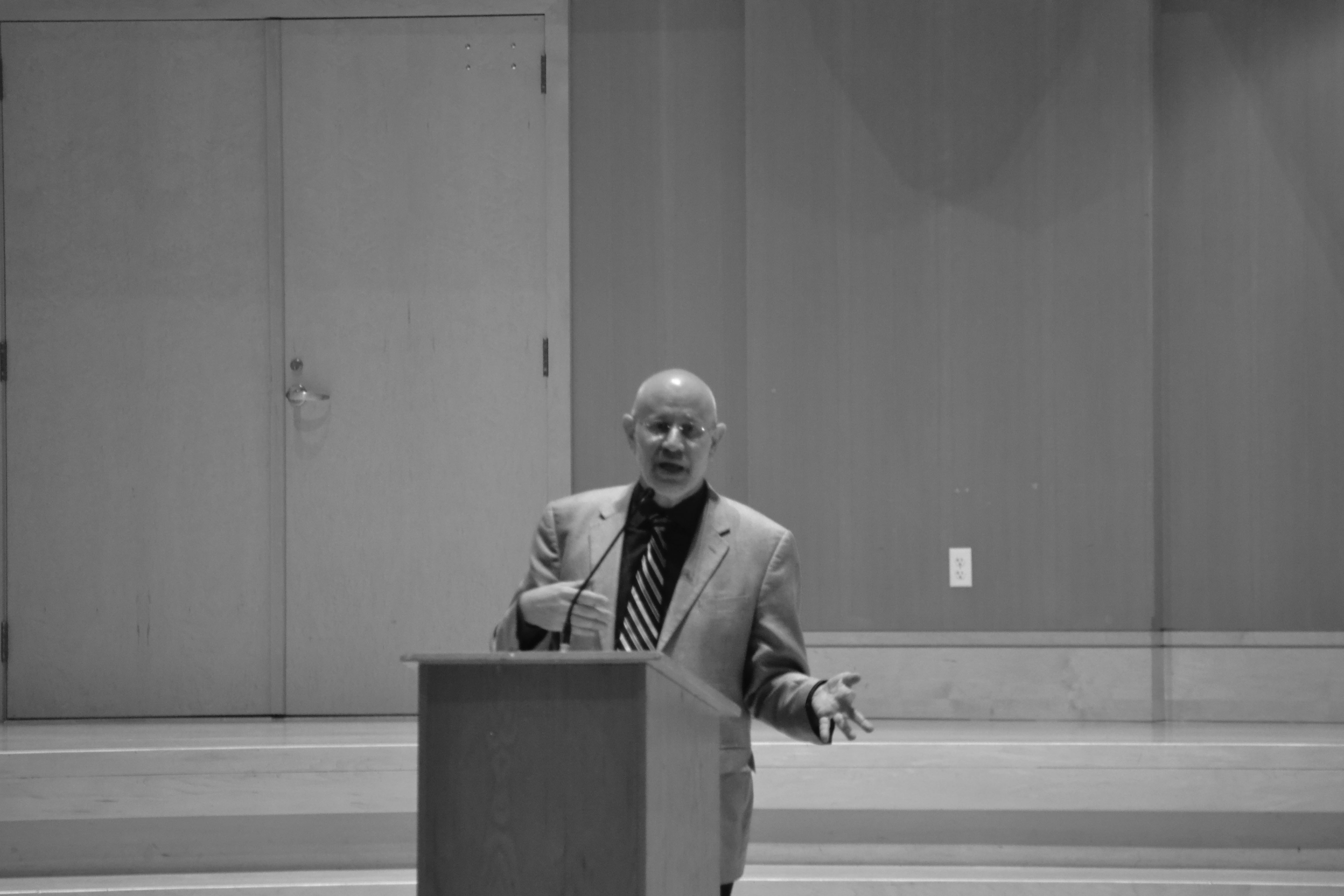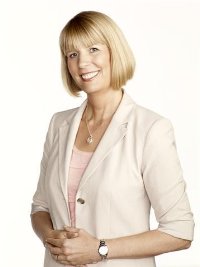Hinderlie’s cheery exterior is in sharp contrast with the unease of its occupants. A tepid anxiety was heralded by Venessa Perkinson, Community Director for Harstad, Hinderlie, and Kreidler. Her email announcing the All-Call for the remnants of the Makerspace’s craft supplies and creative utensils wasn’t expected — November 4 was the end of the Makerspace.
Alexis Austin, one of PLU’s Residential Life staff, offered more information on the transition, as well as additional insight into the history of the program. The Makerspace has been a part of Hinderlie since 2018, Austin explained. “The money that funded the Makerspace was always provided by donor gifts, with management of the funds through Innovation Studies.”
Austin elaborated that “the Makerspace was initially created at a time when PLU had less third-spaces” — separate study spaces for work and community interaction — and this was reflected when both students and various academic departments flocked to use it.
Overtime, however, PLU claims they witnessed a shift in demographics. “In the last couple of years, we’ve seen [the] space [become] primarily used by Hinderlie residents.” They noted that academic classes previously using the space had found new meeting locations, while more and more arts events became available to students across campus in general.
“The decision to shift how this space [would be] used was not made lightly”, Austin affirmed, clarifying that PLU made the decision based on a wide range of assessments — including student diversity demographics, use of the space in general, alternative available programs, and the total amount of upkeep which would be needed to keep the space “clean and functional”. Fall of 2024 was apparently “a test run to see how the [Makerspace] would [operate] without student staff [to maintain] the organization,” which failed when PLU determined that keeping it in order would be impossible.
Austin attests to the budget remaining intact during the 2023-2024 school year. Former Makerspace employee Kat Maloney shared her perspective regarding the budget situation. She shared that the Maker Space “was a gift from the community…[and] Mike Halverson helped fund it.” Mike J. Halverson is a part of PLU’s faculty — though currently on sabbatical — and was one of the Makerspace’s most well-known donors, acting as head of the program before transferring the title to Austin during the dawn of the 2023-2024 school year.
She reflected that, when the school year started, she and the other employees were unsure if anything was in their budget: “[there was] a difference in the quality of our supplies.” By this point, the Makerspace was struggling to get a hold of any replacement or restock materials — even the most common ones. “I just remember asking for smaller things,” Maloney lamented. “People liked making bracelets, so I asked for beads. Those never came.”
“The decline of the Makerspace was sad,” Maloney concluded — a sentiment shared by others. “I chose [PLU] for creativity and the Makerspace specifically. I feel like a lot of people [came here] because it was a comfortable space.”
Luke Neumeiter, a student rooming in the Hinderlie dorm, mourned the loss amongst others. He used to be able to “utilize materials… for mini projects,” while the space also acted as “a gateway to make small talk or hang out with someone new you [had never] met”.
The Collective — PLU’s well-established art club located in Ingram Hall — also offered a statement. “We are all really sad to see the Makerspace go, [as we have all] used it at one point or another… with the closing of the Makerspace, the Collective is more dedicated than ever to keeping the arts accessible on campus!” Hinderlie has long been the dorm for all art majors, bringing into question how the residence hall’s longstanding Creative Expression learning community will maintain its support of the arts.
The Makerspace is now, according to email fliers sent throughout November, considered a “24-hour creative expression lounge” where students can have extra space to use their own supplies.
There may be hope for the Makerspace, but it is a hard road ahead. When asked about the possibility of the Makerspace returning, Austin was firm: “I can’t speak for the entirety of PLU and what it allows, [though] I can provide context”. It would be an excruciating process: new donor gifts would have to be acquired — a “time-intensive process,” she stressed — for a revitalized budget, and another department would have to maintain the budgeting book. A staff member would have to have the time to complete the administrative duties, as well as locate a physical space which could be used long-term with permission from either Campus Life or a building’s unique administration.
“There are a lot of moving parts to [maintain something] like the Makerspace … [but,] if the right combination of these things come together, I think it’s possible that a Makerspace could return to PLU,” concluded Austin.


